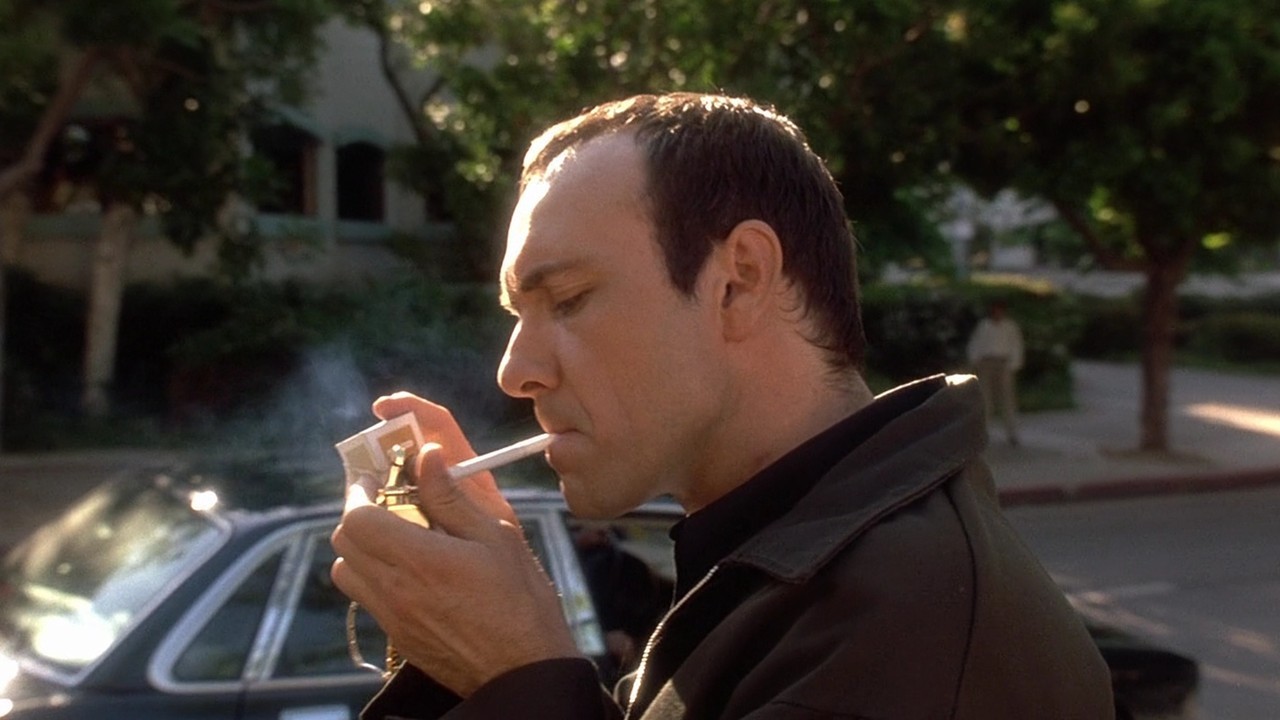
Hollywood is predominately about heroes. As a result their stories can be often very predictable. No matter what happens during the story, one can almost be assured that our central hero will be victorious by the end. It reflects our desire for popular culture to be more optimistic and positive than real life, which can often be cruel and random instead of neatly ordered and morally correct.
In the 40s, things took a drastic change with the b-movie and film noir, where the line between hero, anti-hero and outright villain was blurred. Further revisions took place in the era of New Hollywood, with directors often featuring moody anti-heroes at the forefront of their story.
The horror genre was also unafraid to embrace the darkness. Yet with the rise of the blockbuster, popular entertainment remains (with a few notable exceptions) exclusively centred around heroes, telling their story of triumph over seemingly impossible odds.
Therefore, whether or not you are an Avengers fan, the conclusion of Infinity War came as an almighty surprise. The snap — as it came to be later known — was perhaps the most shocking moment in popular culture since the end of The Empire Strikes Back, leaving audiences completely shaken. Thanos was revealed not to be just the gang’s nemesis, but the central character all along; his arc providing the structure for the unwieldy story.
With Endgame coming up, and the almost guaranteed return of order to the Marvel universe, it’s worth revisiting those stories where the villain is really the hero, and where evil is stronger than love.
Spanning from tragicomedies to film noir to horror, these films are perfect if you are in the mood for seeing the villain get what they want for a change. Read on below to see what we picked. If you disagree with any of them, please feel free to suggest your favourites in the comments below.
It’s worth saying that spoilers will inevitably follow.
1. Body Heat (Lawrence Kasdan, 1981)
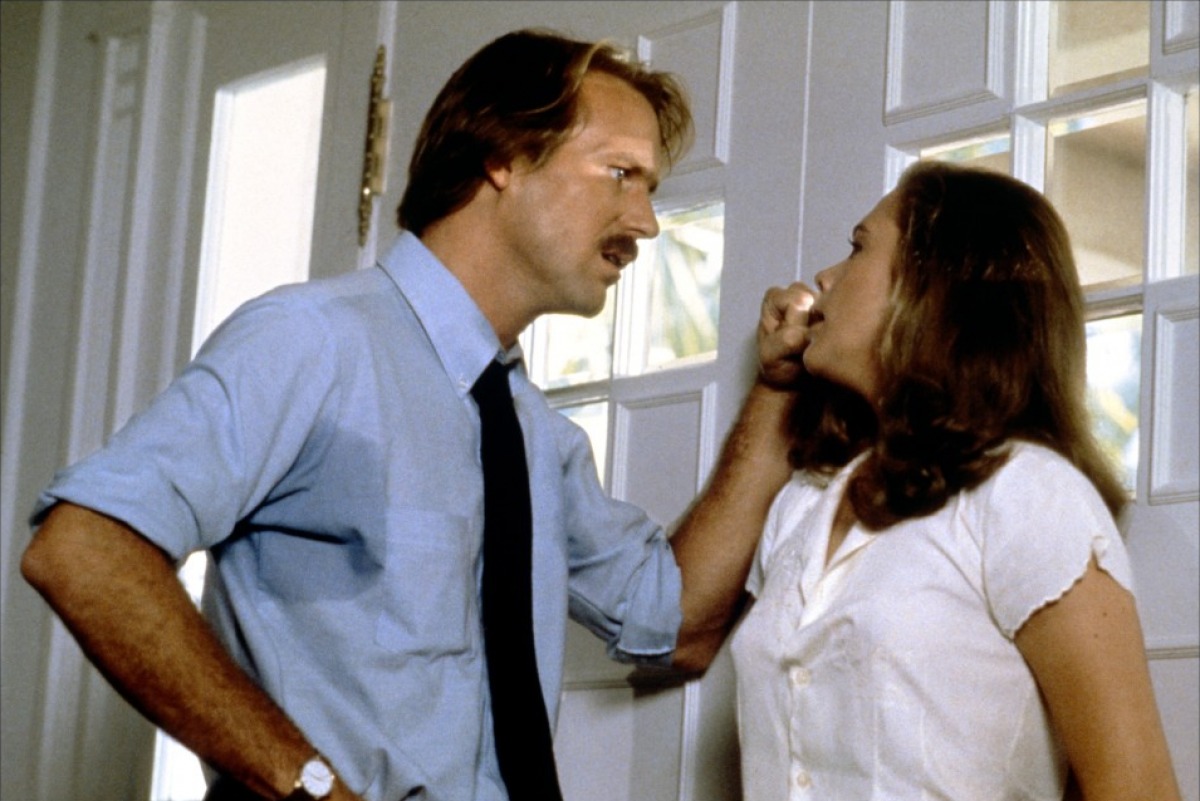
A sultry re-imagining of Double Indemnity that must surely qualify as one of the sexiest films ever made, Body Heat stays completely true to the spirit of film noir. The genre, born out the despair of 1940s America, saw nearly all men as saps, and women as femme fetales, able to crush them through sheer sexiness and manipulation alone. William Hurt plays a lawyer who seduces a beautiful woman in the midst of a heatwave, only to be duped into a scheme to murder her husband.
As he is a lawyer who thinks highly of himself, he believes that he is in control of the story: that the murder is his idea and he will get away with it. He couldn’t be more wrong. The ending is one for the books, finishing with Matty alive and well, lying on a tropical beach.
Staying true to film noir structure, it reveals the scheming Matty — now revealed to be Mary Ann — to be the true hero of the story. She is so sexually confident and bold that we believe anything that happens to him, Kathleen Turner’s performance truly commanding every scene that she’s in.
2. The Silence of the Lambs (Jonathan Demme, 1991)
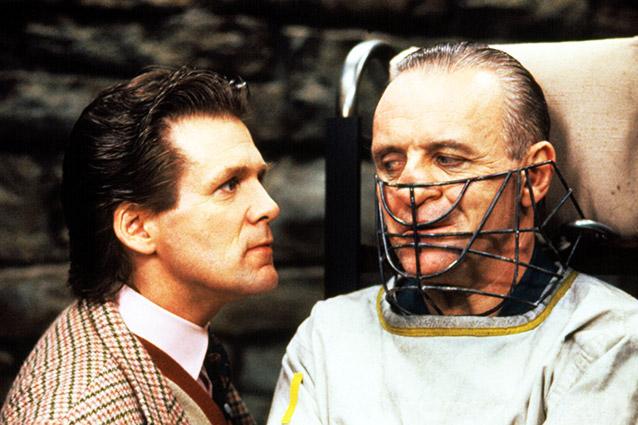
Played with delicious delight by Anthony Hopkins, Hannibal Lecter is one of the creepiest men in cinema. The centrepiece of The Silence of the Lambs is a simple dialogue scene between him and Clarence Starling, played by a fantastic Jodie Foster.
A cannibal with a veneer of respectability, he rattles off lines like “I ate his liver with some fava beans and a nice chianti” with relish. He is horror squared, a full-blooded villain who shows you who he really is from the start and still manages to get away with it.
Horror has often been ground zero for successful villains. As it is the genre most likely to face evil head on and try and milk it for all its cathartic glory, horror fans expect more than any other for the darkness to eventually triumph. The Silence of The Lambs is so clever because it combines elements of the horror genre with the thriller, the initial terror of Starling’s meeting with Lecter being trumped by the presence of a serial killer that only Lecter can help defeat.
In this respect Lecter, for all his evil, becomes something of a hero himself. Still, he is not meant to actually escape from the clutches of the FBI. Nonetheless, he still worms his way out, his evil unable to be contained by the forces of good.
3. The Usual Suspects (Bryan Singer, 1995)
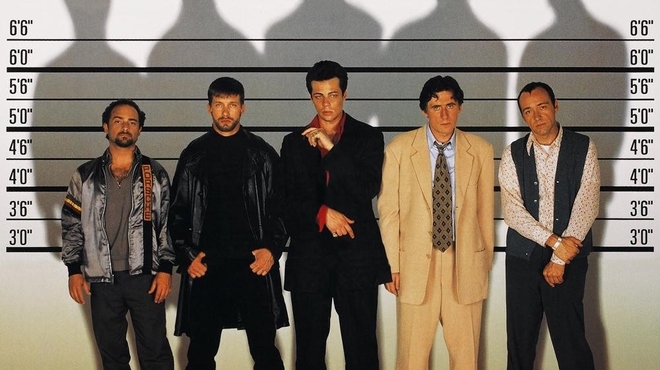
A complex and densely plotted crime thriller, The Usual Suspects thrives on misdirection. Using a combination of flashback and unreliable narration, it tells of a secret crime lord named Keyzer Soze who is one of the most cold-hearted men in the world.
After dozens of men have been killed in a boat fire, the police apprehend Verbal Klint, a con man with cerebral palsy, and grill him about the events that led up to the murders. After a long and protracted story, Klint is lead free, only for his limp to slowly get better until it becomes apparently obvious that he in in fact Keyzer Soze himself.
With the extra knowledge that both director and star are sexual predators, The Usual Suspects might be a hard film to re-watch with this in mind, nonetheless it still holds up as containing one of the most iconic twists in film history.
This effect is maintained by Spacey’s brilliant performance, being able to truly convince us that behind this mild-mannered man with cerebral palsy is in fact an evil crime lord. Despite the film’s complicated plotting, this final twist is still deliriously entertaining.
4. Se7en (David Fincher, 1995)
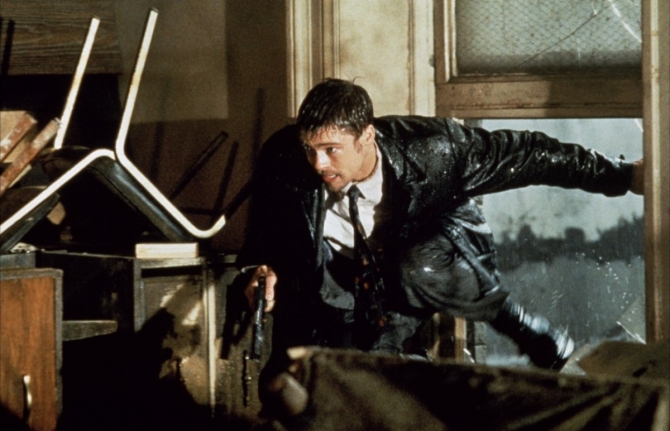
Fincher knows a thing or two about endings that change the entire meaning of a film. Whether it’s The Game, Gone Girl or Fight Club, he uses them to truly transform everything we have understood before.
Nonetheless, Se7en still stands out for its utter bleakness. Not only have they failed to stop the killer before it’s too late, but cop David Mills, played with great howling pain by Brad Pitt, is confronted by the horrific fact that his wife’s head has been cut off.
Another masterclass in villainy by Kevin Spacey, his serial killer feigns a sort of childlike innocence, roping our protagonists into believing they are smarter than him until it is too late.
It’s all the more shocking considering the empathic performance by Morgan Freeman, which really makes us think that mankind can defeat the darkness. Instead it ends on those immortal lines: “Ernest Hemingway once wrote, “The world is a fine place and worth fighting for.” I agree with the second part.”
5. Rosemary’s Baby (Roman Polanksi, 1968)
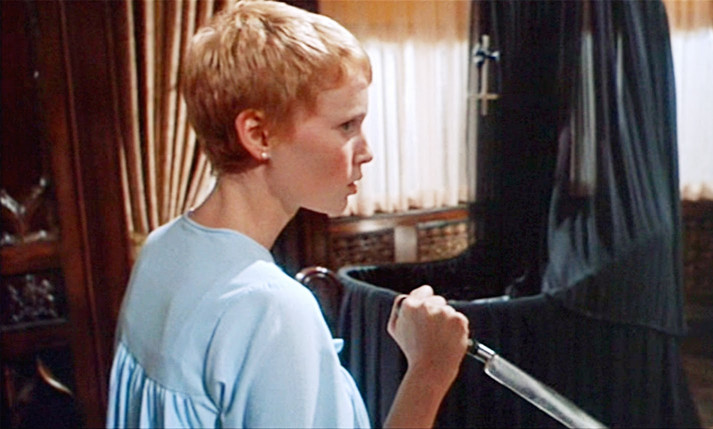
The third film on the list by a man accused of sexual assault, it leaves one to wonder whether getting away with it on screen and getting away with it in real life are somewhat connected. Here Roman Polanski truly ramps up the villainy, telling the story of a pregnant woman who unwittingly gives birth to the antichrist!
Rosemary’s Baby is so effective because it grounds itself in real themes of gaslighting and women not being believed. Her husband, played with perfection by John Cassavetes, is at first assumed simply to be an uncaring man, but he is in fact aiding and abetting the antichrist’s arrival upon earth.
Mia Farrow does a brilliant job as the pregnant woman overcome with paranoia, making her fears feel viscerally real. The ending is truly shocking; Rosemary has not only stopped the baby from being born, but in fact eventually welcomes him, leading to a despairing message for the rest of mankind.